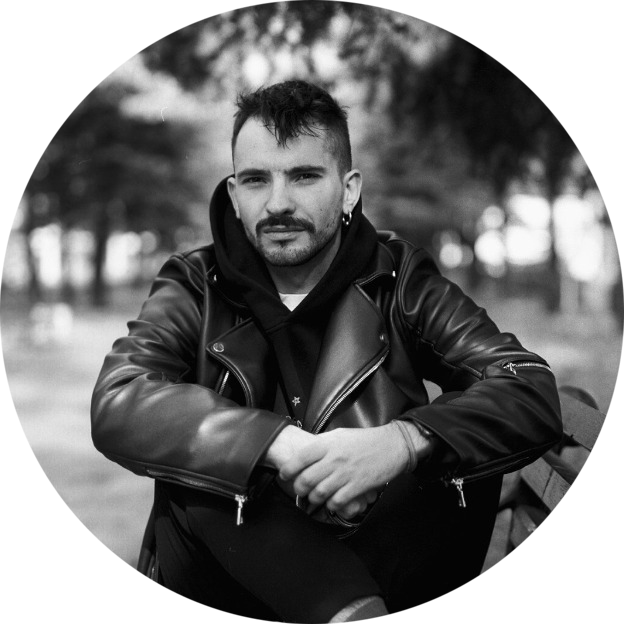by Valeria Volkogonova, Local Correspondent from Belarus and Alexandra Savinich (Office for European Expertise and Communications).
In today’s Belarus it is quite a bit of a challenge to write about any underrepresented groups. The local mass media are focused on the COVID-19 pandemic topics or on the political agenda issues; however, it is at times like these that one should make it a point not to leave out human rights issues.
For this reason we talked to Nick Antipov, an LGBTQI activist and co-founder of the MAKEOUT organisation, on what is going on currently within the LGBTQI+ movement in Belarus.

“Being an LGBTQI person in Belarus is not outlawed. There are no administrative or penal sanctions,” says Nick. “Yet, Belarus lacks an anti-discriminatory law, with the LGBTQI activists, male or female, being subject to persecution by the government authorities, particularly so in the non-metropolitan areas.”
On the 17th of May, 2018, the United Kingdom Embassy to Belarus displayed outdoors a rainbow flag in support of the LGBTQI community rights, which was followed by a response from the Belarusian Ministry of Internal Affairs in the form of a post on its website entitled “We Advocate the Authentic Things” outlining its position: “The Ministry of Internal Affairs regrets the rainbow flag displayed at the embassy and considers the action a challenge to the traditional Belarusian values.”
“The year of 2018 saw an uprise of the anti-gender movement supported by the Catholic Church”, says Antipov. “The movement advocated the pro-life agenda and initiated, among other things, an idea of criminal liability for disseminating information on LGBTQI. Signatures were also collected in Catholic churches. The letter on gay propaganda ban enactment was forwarded to the Belarusian government and, according to the supporting activists, contained 50,000 signatures.”
All the above shows that the LGBTQI rights situation in Belarus is anything but simple.
Three LGBTQI Activism Waves in Belarus
“Since 2014 the LGBTQI movement in Belarus has risen to become a visible and key player in the civil society sector”, believes Nick. “At this juncture, there are more than 10 various initiatives in place, which represents the highest number achieved within the recent dozens of years.”
“Belarus has witnessed three LGBTQI activism waves: in the 1990s and early 2000s, in 2008 through 2013, and nowadays. The previous two waves had gone under, due to persecutions. Today we record over 10 initiatives; in 2017 our initiative published a printed magazine on gender and sexuality by collecting the money to support it through a public crowdfunding, whereas in 2018 the MAKEOUT was officially registered as an organisation”, continues the expert.
The above facts provide evidence in support of a beefed-up LGBTQI movement in Belarus, since the civil society, even if in no way related to the agenda, has begun donating funds for its support. It is recognition of a kind that the issue is significant and relevant to the Belarusian society at large.
2020 Presidential Elections and LGBTQI Activism
Promotion of the bill banning LGBTQI+ information propagation has failed to roll out, because Belarus was plagued by COVID-19. It was exactly then that the civil society sector, just like the LGBTQI movement, was faced with a crucial dilemma: how to work under the current pandemic conditions?
“Very soon, in spring, Belarus entered the presidential election campaign,” recalls Nick. “And the agenda was once again changed. No one could then anticipate to what extent the election was to become visible”.
“It was then that we decided to join ten other LGBTQI initiatives and set up a platform that included a questionnaire for male and female candidates running for presidency to learn about what they thought. It served as a declaration of a sort: “We, the LGBTQI community members are actors, signature collectors, your HQ volunteers and voters, and we want to know what you think about equality.”
Yet, the attempt to disseminate the questionnaire across the HQs was a failure: at first, Siarhiej Cichanoŭski was detained and the Viktar Babaryka followed suit. Once again, the informative agenda was transformed.
“We realized that the LGBTQI+ issues, here and now, are no longer centremost, since we do not have a choice: the candidates running for presidency had been detained,” said Nick. “This is why we had to adapt and for the time being put these issues aside. For instance, I became an electoral observer, simply because I could not afford standing on the side-lines.”
“It must be stressed that everything I am telling is about my personal story and vision as an LGBTQI activist. It is of importance but cannot provide an objective broader picture for the entire movement,” says Nick Antipov.
Following August 9 to 11, 2020, when the world learned about the violence in Belarus – the UN reported 450 torture cases, – the LGBTQI persons, alongside others, kept on volunteering, recording torture and violence facts or helping the detainees and their relatives. While being involved in such actions, they could not openly identify themselves as LGBTQI persons because of homophobia. Although, against all odds, a ‘queer’ column was formed with its members taking part in the peaceful protest actions under the rainbow flags and slogans. As a consequence, they faced bullying and threats, mostly on the Internet, rather than during the marches themselves.
 This is to show how the LGBTQI movement in Belarus is already visible, already pro-active and already makes part of the civil society.
This is to show how the LGBTQI movement in Belarus is already visible, already pro-active and already makes part of the civil society.
Way Forward
“We have lots of plans for the future underway,” sums up Nick Antipov. “However, what really matters is to understand that the struggle for human rights and the struggle for equality are going on. The struggle will not discontinue with the regime change. There is too much violence around that is not being addressed. I took an interest in the topic of how violence and homophobia in institutions affect the crimes performed on the grounds of hatred to LGBTQI+. In my opinion, gender equality is only possible after all these traumatising experiences have been comprehended, awoken to and responded to. This means that the Belarusian LGBTQI movement still has its most important events ahead and that today just marks its beginning…”
This article was produced by Valeria Volkogonova and Alexandra Savinich in the framework of the EU-funded ‘Eastern Partnership Civil Society Facility – Regional Actions’ Project. Its contents are the sole responsibility of its authors and do not necessarily reflect the views of the European Union or the Project.
Read more about our local correspondents here.






